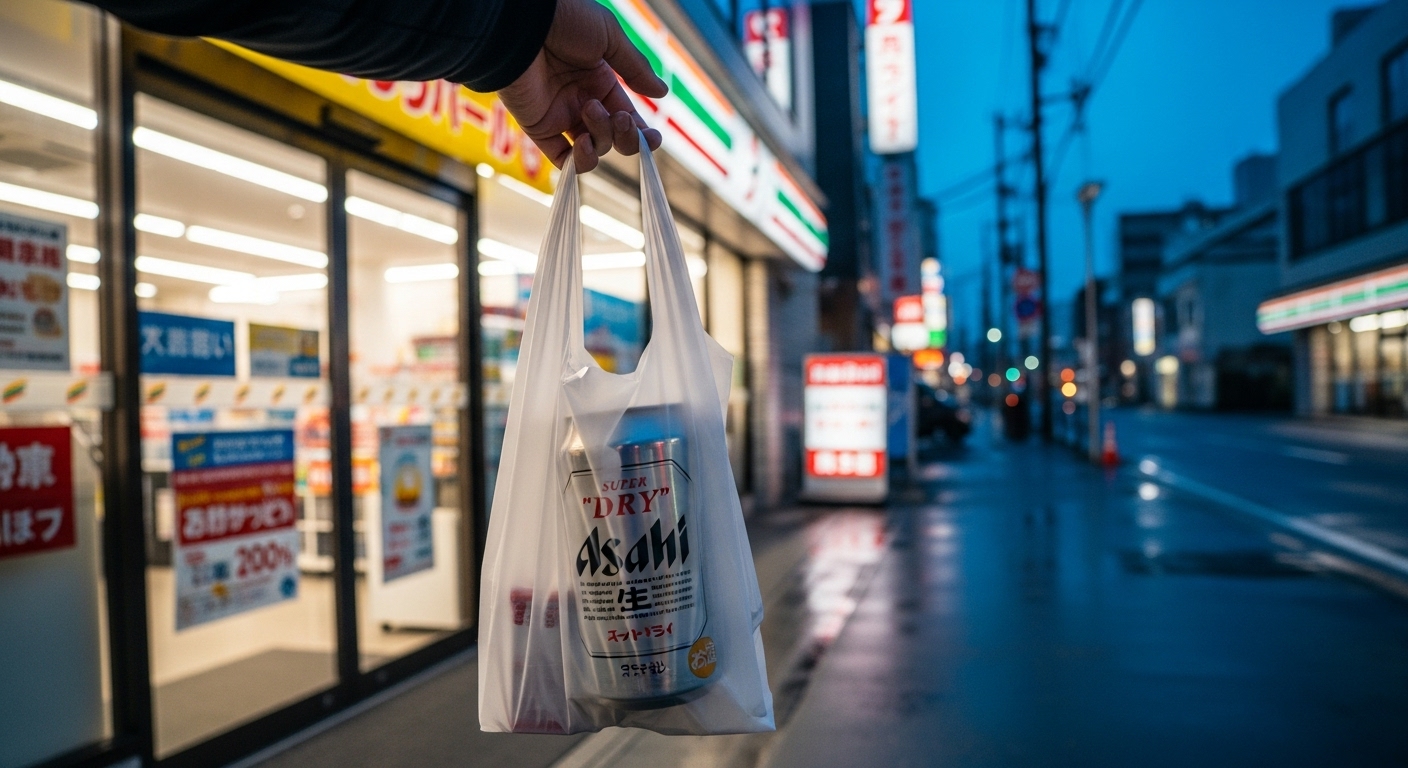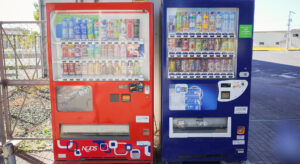

While traveling in Japan, you may wonder, “Is it really okay to drink the beer I bought at a konbini outside?” Public drinking isn’t completely banned, but not knowing the local rules or etiquette can lead to trouble, especially in busy areas.
This guide explains Japan’s drinking laws, restricted street-drinking zones, situations where police may give warnings, and how to handle trash responsibly. With the right knowledge, you can enjoy your beer safely and comfortably during your Japan trip.
Can You Drink Beer Outdoors in Japan? A Clear Guide to Laws and Basic Public Drinking Rules
In Japan, street drinking is not entirely illegal, but causing disturbances in public spaces can attract police attention. In popular tourist areas and nightlife districts, local regulations may restrict drinking, so checking the rules in advance is important for travelers.
Japan values quiet, clean public environments. Noise at night, littering, or leaving cans behind can easily become issues. When enjoying beer outdoors, be mindful of those around you and follow local etiquette. These simple rules help ensure a safe and pleasant experience.
Is It Okay to Drink Konbini Beer on the Spot? Rules, Restrictions, and Exceptions
Drinking beer right outside a convenience store is not explicitly illegal in Japan, but konbini property is private land. Some stores prohibit drinking on-site to avoid noise, loitering, or late-night trouble. During busy hours, loud behavior can attract police warnings, so travelers should be cautious.
On the other hand, public events such as cherry-blossom picnics or local festivals often allow outdoor drinking. Even in these cases, leaving trash behind or causing disturbances can quickly lead to trouble. Being considerate and keeping the area clean are essential parts of safe public drinking in Japan.
Where Is Street Drinking Banned? Key Restricted Areas Travelers Should Know
Japan does not have a nationwide ban on street drinking, but certain busy districts—such as Shibuya or Shinjuku—designate official “no street drinking zones.” During major events like Halloween or New Year’s Eve, local ordinances may impose temporary restrictions. Ignoring posted rules can result in warnings from the police, so always check local signs.
When Do Police Step In? Common Trouble Cases and Misunderstandings Among Visitors
Public drinking itself is usually allowed, but actions such as loud noise, drinking while walking, blocking pathways, or littering can prompt police intervention. In nightlife districts, even talking loudly with a beer in hand may lead to a brief police check. Tourist areas follow similar standards to maintain a peaceful environment.
Many visitors mistakenly assume that drinking is allowed everywhere in parks. In reality, rules vary by city, and some zones carry fines or full restrictions. Police in Japan focus more on preventing trouble than punishing it, so drinking moderately and behaving quietly are key to enjoying Japan safely.
You might be interested in this
How to Dispose of Beer Cans in Japan: Essential Trash Rules for Travelers
One thing many visitors notice is the lack of public trash cans. For safety and cleanliness, many bins were removed from parks and train stations, meaning you often cannot discard beer cans on-site. Littering is treated more seriously than street drinking and may lead to police warnings, so knowing the proper disposal method is important.
Essential Alcohol Rules in Japan: Drinking Age, Purchase Limits, and Tax Laws
In Japan, drinking alcohol under the age of 20 is strictly prohibited by law, and convenience stores or supermarkets will ask for ID when you buy beer or other drinks. Alcohol sales are carefully regulated under Japan’s Liquor Tax Law, and travelers are not exempt from these rules. Although there is no nationwide ban on late-night sales, stores may refuse to sell alcohol if they anticipate trouble or disruptive behavior.
FAQ | Common Questions from Travelers: Is Outdoor Drinking Allowed? Are There Fines?
- Is it really okay to drink beer outside in Japan? Will the police stop me?
- Street drinking is not banned nationwide, but loud noise, nuisance behavior, or leaving trash behind can lead to police warnings. Drinking responsibly is usually fine, though nightlife districts and crowded areas require extra caution.
- Can I sit and drink in front of a convenience store? Is it allowed on store property?
- Konbini grounds are private property, and some stores prohibit drinking at the entrance to prevent noise or loitering. Always check posted signs and avoid actions that inconvenience staff or customers.
- Is it okay to drink beer in parks or by the river? Will families around me feel uncomfortable?
- Many parks allow drinking, but quiet behavior is expected, especially around children and families. Littering or causing disturbances can quickly lead to complaints or trouble, so being considerate is essential.
- Where do I throw away beer cans? Why are there so few trash bins?
- Public trash cans are limited in Japan for safety and cleanliness, so “take your trash with you” is the standard rule. Some konbini have recycling boxes at the entrance, but do not rely on them everywhere.
- Is drinking outside at night considered a nuisance? Until what time is it acceptable?
- Late-night noise often leads to complaints from residents and may draw police attention. There is no official curfew, but after 10 p.m. travelers should keep voices low and avoid group drinking or playing music.
- Can I drink beer on trains or buses? Are there local rules?
- Rules vary by region and time, but drinking on crowded commuter trains is strongly disliked. On buses it is almost always prohibited. Some tourist trains are exceptions, but regular public transport should be avoided for drinking.
- Can I be fined for drinking alcohol outdoors in Japan?
- Normal outdoor drinking does not automatically result in a fine, but restricted areas designated by local ordinances may impose penalties. Littering and nuisance behavior can also result in fines under separate laws. Following local rules ensures a trouble-free experience.




